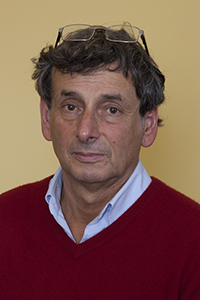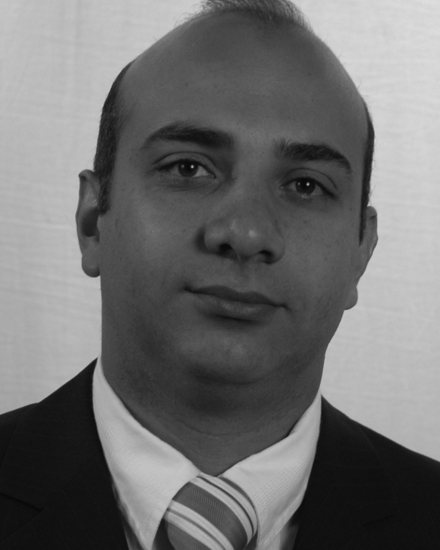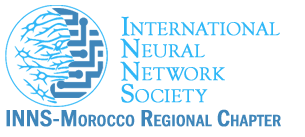| The second International Conference On Intelligent Computing in Data Sciences ICDS2018 October 03-04-05, 2018 Fez-Morocco |

Pr. Péter Érdi
Kalamazoo College, USA
Professor of Complex Systems Studies
Title : "From Cybernetics to Cognitive Science and Back"
Biography:
Dr. Péter Érdi serves as the Henry R. Luce Professor of Complex Systems Studies at Kalamazoo College. He is also a research professor in his home town, in Budapest, at the Wigner Research Centre of Physics of the Hungarian Academy of Sciences. In addition, he is the founding co-director of the Budapest Semester in Cognitive Science, a study abroad program. Péter is a Member of the Board of Governors of the International Neural Network Society, the Vice President of Membership of the International Neural Network Society, member of the IEEE Computational Intelligence
Society Curriculum Subcommittee, and among others as the Editor-in-Chief of Cognitive Systems Research. His books on mathematical modelling of chemical, biological, and other complex systems have been published by Princeton University Press, MIT Press, Springer Publishing house.

Pr. Hani Hagras
The Computational Intelligence Centre
School of Computer Science and Electronic Engineering
University of Essex, Wivenhoe Park, Colchester, CO4 3SQ, United Kingdom
Professor of Computational Intelligence
Title: "Type-2 Fuzzy Logic Systems to Handle the Uncertainties in Real-World Applications"
Biography:
Hani Hagras is a Professor of Computational Intelligence, Director of the Computational Intelligence Centre, Head of the Fuzzy Systems Research Group and Head of the Intelligent Environments Research Group in the University of Essex, UK.
He is a Fellow of Institute of Electrical and Electronics Engineers (IEEE) and he is also a Fellow of the Institution of Engineering and Technology (IET).
His major research interests are in computational intelligence, notably type-2 fuzzy systems, fuzzy logic, neural networks, genetic algorithms, and evolutionary computation. His research interests also include ambient intelligence, pervasive computing and intelligent buildings. He is also interested in embedded agents, robotics and intelligent control.
He has authored more than 300 papers in international journals, conferences and books. His work has received funding that totalled to about £5 Million in the last five years from the European Union, the UK Technology Strategy Board (TSB), the UK Department of Trade and Industry (DTI), the UK Engineering and Physical Sciences Research Council (EPSRC), the UK Economic and Social Sciences Research Council (ESRC) as well as several industrial companies including. He has also Five industrial patents in the field of computational intelligence and intelligent control.
His research has won numerous prestigious international awards where most recently he was awarded by the IEEE Computational Intelligence Society (CIS), the 2013 Outstanding Paper Award in the IEEE Transactions on Fuzzy Systems and also he has won the 2004 Outstanding Paper Award in the IEEE Transactions on Fuzzy Systems. He was also awarded the 2015 Global Telecommunications Business award for his joint project with British Telecom. In 2016, he was elected as Distinguished Lecturer by the IEEE Computational Intelligence Society. He was also the Chair of the IEEE CIS Chapter that won the 2011 IEEE CIS Outstanding Chapter award. His work with IP4 Ltd has won the 2009 Lord Stafford Award for Achievement in Innovation for East of England. His work has also won the 2011 Best Knowledge Transfer Partnership Project for London and the Eastern Region. His work has also won best paper awards in several conferences including the 2014 and 2006 IEEE International Conference on Fuzzy Systems and the 2012 UK Workshop on Computational Intelligence.
He served as the Chair of IEEE Computational Intelligence Society (CIS) Senior Members Sub-Committee. He served also as the chair of the IEEE CIS Task Force on Intelligent Agents. He is currently the Chair of the IEEE CIS Task Force on Extensions to Type-1 Fuzzy Sets. He is also a Vice Chair of the IEEE CIS Technical Committee on Emergent Technologies. He is a member of the IEEE Computational Intelligence Society (CIS) Fuzzy Systems Technical Committee. He served also as a mement of the IEEE CIS Fellows Committee. He serves also as a member of the IEEE CIS conferences committee.
He is an Associate Editor of the IEEE Transactions on Fuzzy Systems. He is also an Associate Editor of the International Journal of Robotics and Automation.
Prof. Hagras chaired several international conferences where he will act as the Programme Chair of the 2017 IEEE International Conference on Fuzzy Systems. He served as the Co-Chair of the 2014, 2013, 2011 and 2009 IEEE Symposium on Intelligent Agents, and the 2011 IEEE International Symposium on Advances to Type-2 Fuzzy Logic Systems. He was also the General Co-Chair of the 2007 IEEE International Conference on Fuzzy systems.

Pr. Nikola S Nikolov
The University of Limerick, Computer Science and Information Systems
Professor of Computer Science and Information Systems (CSIS)
Title: Big Data Analytics: Algorithmic and Infrastructure Challenges and Solutions
Biography:
Dr Nikola S. Nikolov is a Lecturer in the Department of Computer Science and Information Systems (CSIS) at the University of Limerick where he has been an academic faculty member since 2001. He is a course director of five software development and data analytics skill-conversion programs funded by the Irish Springboard. As a co-head of the Big Data and Analytics Research Group (BDARG), DrNikolov has organised more than 20 talks of speakers from various academic organisations and software companies since 2015. Dr Nikolov is a member of the IEEE Technical Committee on Visual Analytics and Communication and the author of more than 50 research papers in network visualization and data mining, including articles in Discrete Applied Mathematics, Wireless Communications and Mobile Computing, Springer’s Lecture Notes in Computer Science and other journals. He has worked as a principle investigator on research projects funded by Science Foundation Ireland and the Irish Research Council, as well as a supervisor of PhD students funded by the China Scholarship Council, the Ministry of Education of Libya and the government of Saudi Arabia. In 2016, he was awarded an Erasmus+ mobility grant for collaboration with Laboratoire Systèmes Intelligents et Applications at University Sidi Mohamed Ben Abdellah in Morocco. Dr Nikolovis also affiliated with the Telecommunications Research Centre (TRC) and the Interaction Design Centre (IDC) at the University of Limerick.


